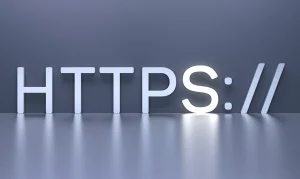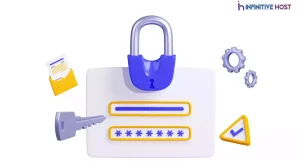SSL (Secure Sockets Layer) is a protocol that helps protect your online transactions from being intercepted by third parties. The protocol creates an encrypted connection between your computer and the site you’re visiting, providing a more secure browsing experience. SSL is often required for sites that offer sensitive information, such as bank accounts or credit card information.
Introduction
Over the past few months, website owners around the world have been bombarded with information on SSL. Internet security protocol SSL, or secure socket layer, is used to protect website data. The transition from a luxury to a requirement for websites throughout the world is due to changes in Google’s policies.
In order to ensure the safety of user data, websites employ the SSL data transfer protocol. SSL is already a part of your daily internet routine. Your connection is safe whenever you see “https” in the URL of a website in your browser’s address bar.
Basically, SSL protects your browser’s connection to the web server from being hacked or interfered with. A digital encryption key is established when the two computers join. Messages exchanged between two computers can only be decoded by the server and your computer or smartphone. An SSL (Secure Sockets Layer) provides a secure means to communicate with your consumers.
What is the significance of SSL?
SSL is a must if you want to accept payments or client information over your website. Customers’ personal information is at risk if you don’t encrypt their credit card data when they make a transaction with you. As a result, hackers and other baddies have full access to your personal information as it moves over the internet.
Protects against additional hacking and assaults, such as spoofing, which SSL also safeguards against (a website posing as your website). It is possible for another website to pretend as your own and steal sensitive user data that is sent to the wrong server as a result of spoofing.
Adding SSL to your website for search traffic is a new incentive for doing so at the beginning of 2017. SSL became a ranking factor for Google in 2016. SSL is becoming a more significant ranking component in 2017. As a result, your internet business will suffer if SSL is not implemented. This crucial step must not be omitted under any circumstances.
Does SSL have a monetary price tag?
In the earlier days, there were few affordable solutions for implementing SSL on your website. Depending on the certificate you select, most hosting firms charge between $50 and $60 a year to use their services.
Let’s Encrypt, on the other hand, began to alter the landscape last year. Let’s Encrypt is a non-profit devoted to making the internet’s SSL connections more widely available. SSL certificates are now offered as part of your hosting account at no additional cost thanks to collaborations with major hosting providers.
With a participating hosting company, you may host your business website. SSL encryption is as simple as adding a “s” to the end of your website’s URL in your settings.
For website owners, there is virtually no reason not to adopt SSL now that it is being made available for free. This option is available even if your host is not participating in Let’s Encrypt. Let’s Encrypt is an excellent option for enlisting the help of your web server. If this is the case, you may want to explore switching to a more progressive host.
Read More : An Introduction To SELinux
How to add SSL to your company’s online presence?
A growing number of web hosts now provide an SSL certificate as part of their hosting plans. Changing your website’s settings from HTTP to HTTPS requires logging into your host’s control panel. Looking in your web hosting cPanel can reveal if you have an SSL certificate configured.
Activating an SSL certificate on your website is as simple as following this step-by-step instructions. There’s no need for a third-party plugin.
In the event that your web hosting business still believes it’s 2016 and doesn’t offer free SSL, you will need to purchase and install SSL yourself. You may hire a web host to make it for you, or you can use one of the many free internet tutorials.
Final Takeaway
In conclusion, SSL is a security protocol that helps protect your business’ data from prying eyes. It’s important to have it in place so you can ensure the safety of your customers’ information. Make sure you are using an SSL certificate to encrypt your traffic and keep your passwords and other sensitive information safe.







